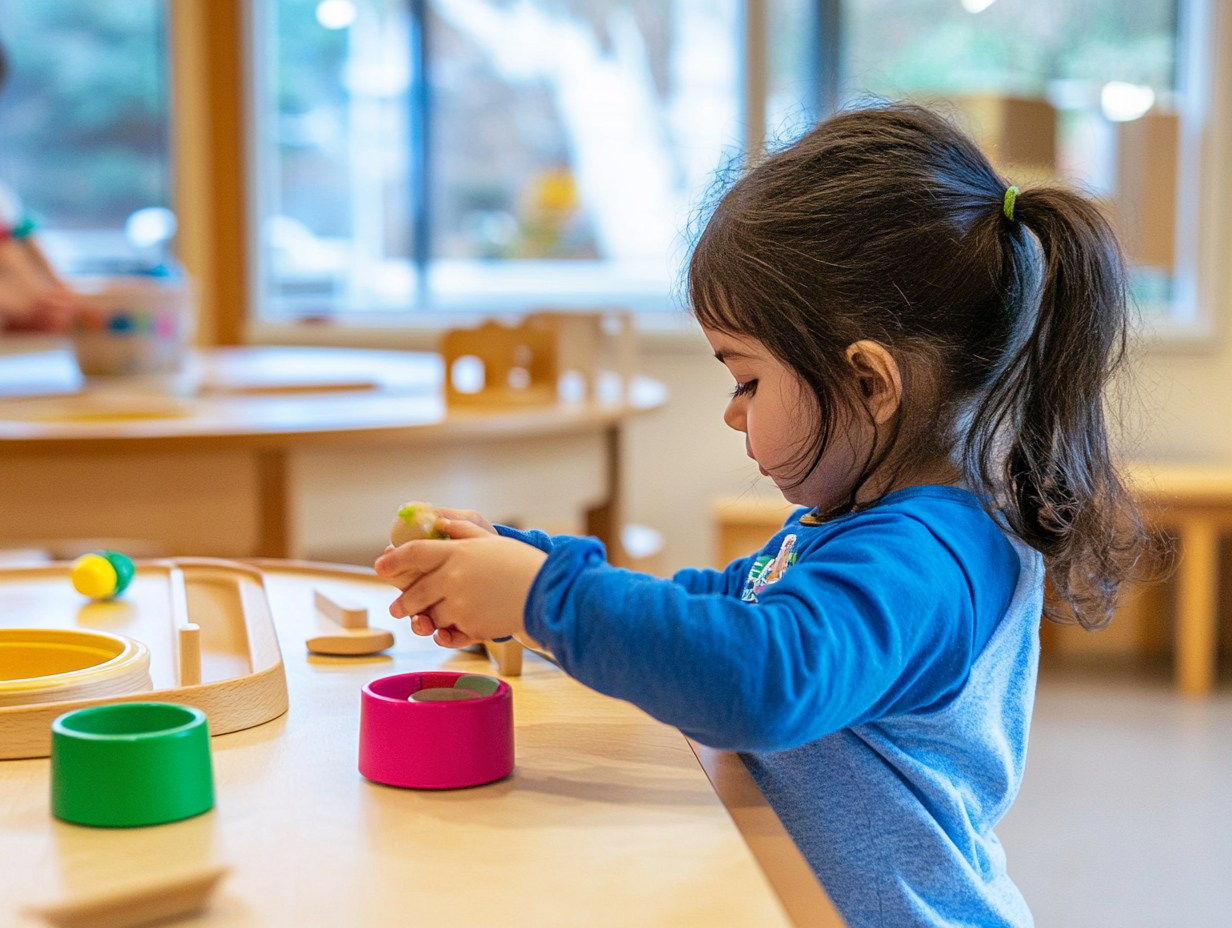In Montessori education, sensory play is more than just fun—it’s fundamental. Sensory activities help children explore the world through their senses, building neural connections that support learning and development. Let’s dive into why sensory play is so important in Montessori and how you can incorporate it at home.
1. Educational Perks: Engaging the Senses for Learning
By engaging multiple senses at once—like touch, sight, and smell—sensory play helps children absorb new information and understand the world around them. It’s hands-on learning at its finest, whether they’re playing with textured materials or experimenting with sounds and smells.
2. Developmental Benefits: Building Neural Connections
Sensory play helps build neural pathways in the brain, supporting everything from problem-solving skills to language development. It also aids in fine motor development as kids manipulate small objects, pour, and scoop during sensory activities.
3. Pros: Fun and Therapeutic
Sensory play isn’t just educational—it’s also soothing. Activities like playing with water, sand, or slime can help children relax and regulate their emotions, making sensory play both fun and therapeutic.






